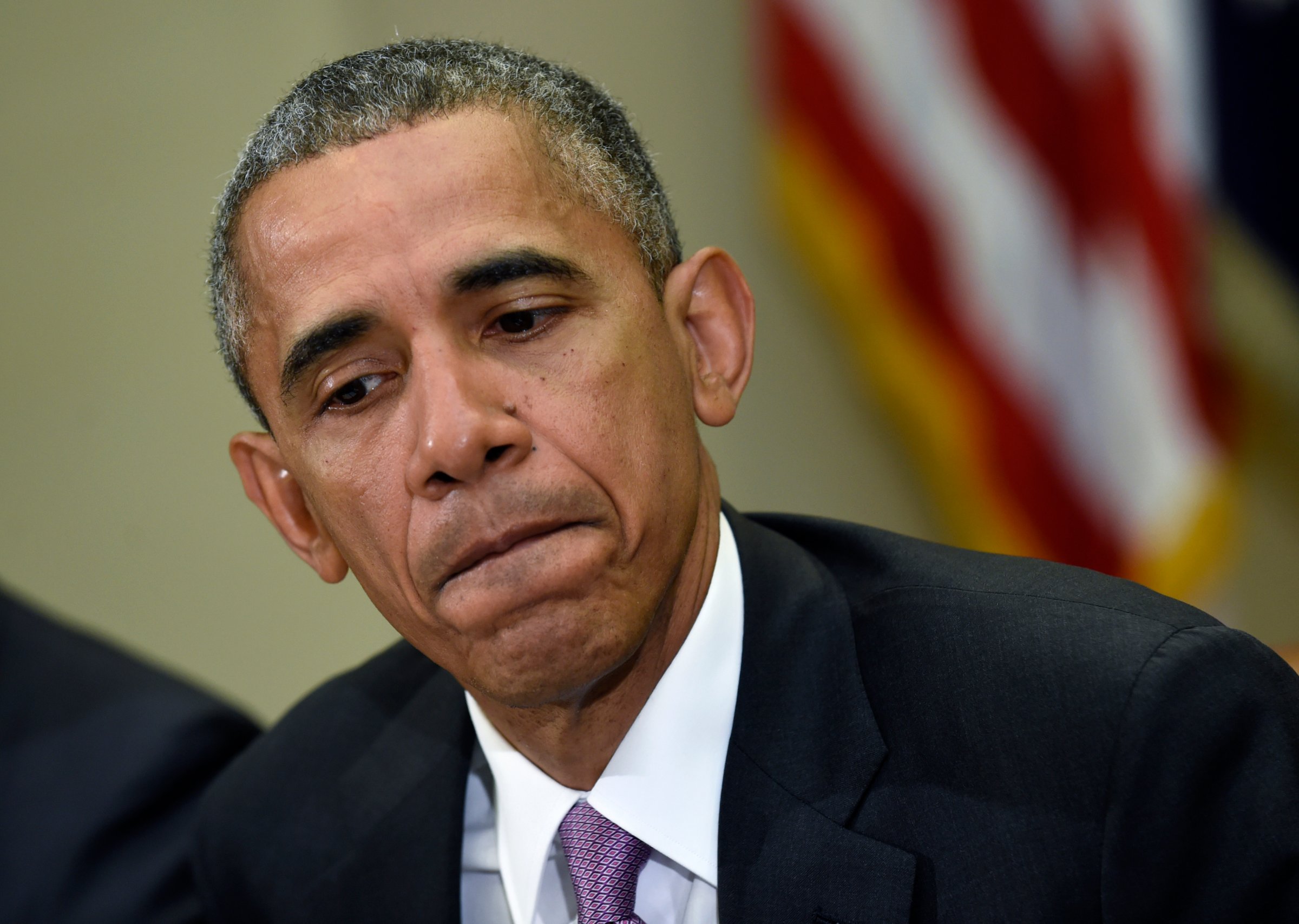
In his years-long effort to advance a massive new trade deal, President Obama weathered a major setback Tuesday from an unlikely source: his fellow Democrats.
While Senate Republicans largely rallied around a vote to consider the so-called fast-track trade bill, which would strengthen Obama’s authority to complete the Trans-Pacific Partnership, all but one Senate Democrat voted to block it.
The fast-track bill would limit Congress’s ability to amend future trade pacts and is widely considered a vital first step on the path to ratifying the partnership, the biggest free trade deal of all time and a legacy-defining priority for the Obama Administration.
Whether Tuesday’s setback is permanent is now the big question.
Shortly after the vote, a half-dozen liberal groups, including the AFL-CIO, Democracy For America and Greenpeace, which have vehemently opposed both fast track and the trade deal, celebrated Tuesday’s blocked vote as a major victory. “We appreciate those senators who stood with working people today against a bill that would have led to undemocratic trade deals that lower wages and eliminate jobs,” crowed AFL-CIO President Richard Trumka in a statement. “This vote sends a message loud and clear.”
But whether the vote actually forebodes the end of the fast track—and the end of the Trans-Pacific Partnership more broadly—is actually not clear at all.
Simon Rosenberg, the founder and president of the New Democrat Network and a supporter of free trade, explained the day’s drama as simply an effort by Senate Democrats, many of whom have every intention to eventually vote in favor of fast-track, to sweeten the pot a bit in the meantime. “What Democrats are saying is, if you want our votes, we need more than what we have now,” he said.
What exactly Senate Democrats hope to get out of this maneuver—and whether their power play will work—will likely be hashed out in negotiations in coming weeks.
Pro-trade Democrats, including Sen. Ron Wyden of Oregon, who coauthored the fast track bill, and Sen. Dianne Feinstein of California, who also supports giving the president fast track authority, have not been shy in their demands. Both said they would not vote to advance the fast track until Senate Majority Leader Mitch McConnell agreed to include in the package three other trade measures, including one that would crack down on currency manipulation, one that would aid U.S. workers harmed by a new free trade deal and another that would strengthen the government’s ability to crack down on violations of the trade deal.
There is apparently room for negotiation. New York Democratic Sen. Chuck Schumer, who is in favor of the fast track and the free trade deal, but said he withheld his support until a measure on currency manipulation was included, told the New York Times that he might be willing to drop that demand. By Tuesday evening, McConnell was already wheeling and dealing, telling reporters that he had already repackaged the fast track bill with the measure helping U.S. workers, and said that Democrats could add other measures as amendments.
But Bhaskar Chakravorti, the founding executive director of Tufts University’s Fletcher’s Institute for Business in the Global Context, warned that it’s not that simple. New measures can’t simply be added overnight to the draft trade deal, which currently encompasses the U.S. and 11 other countries, including Japan, Australia, Vietnam and Chile and would govern 40% of the world’s Gross Domestic Product. U.S. negotiators will have to take each change back into multiple rounds of discussion with all 11 partner countries, all of which are at different stages of development and have different things to gain from the pact, Chakravorti said.
One of the stickiest wickets, experts say, might be a measure restricting currency manipulation. Japan has said explicitly that it will not join a free trade deal that includes such restrictions.
But, Chakravorti added, the Democratic Senators’ public mutiny against their own president could also help U.S. negotiators in the long run. “Preventing the fast track is already sending a signal to the negotiators on the other side of the table [in foreign countries] to offer certain protections for certain type of jobs,” he added. “It was meant to send a signal and I’m sure that signal is being heard.”
More Must-Reads from TIME
- Cybersecurity Experts Are Sounding the Alarm on DOGE
- Meet the 2025 Women of the Year
- The Harsh Truth About Disability Inclusion
- Why Do More Young Adults Have Cancer?
- Colman Domingo Leads With Radical Love
- How to Get Better at Doing Things Alone
- Michelle Zauner Stares Down the Darkness
Write to Haley Sweetland Edwards at haley.edwards@time.com